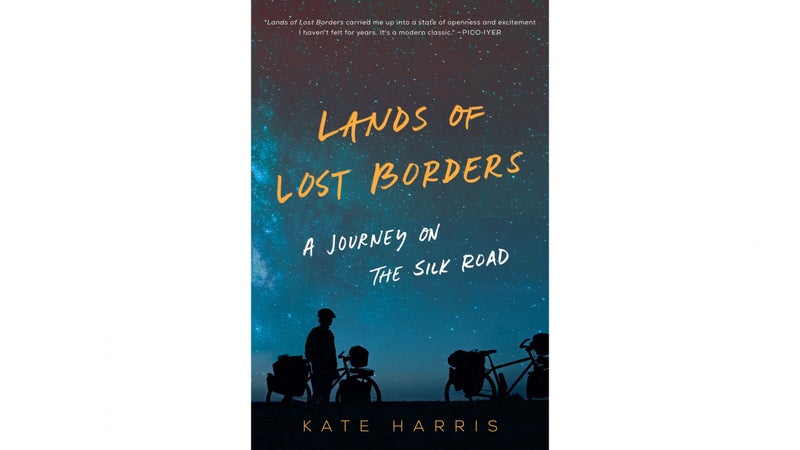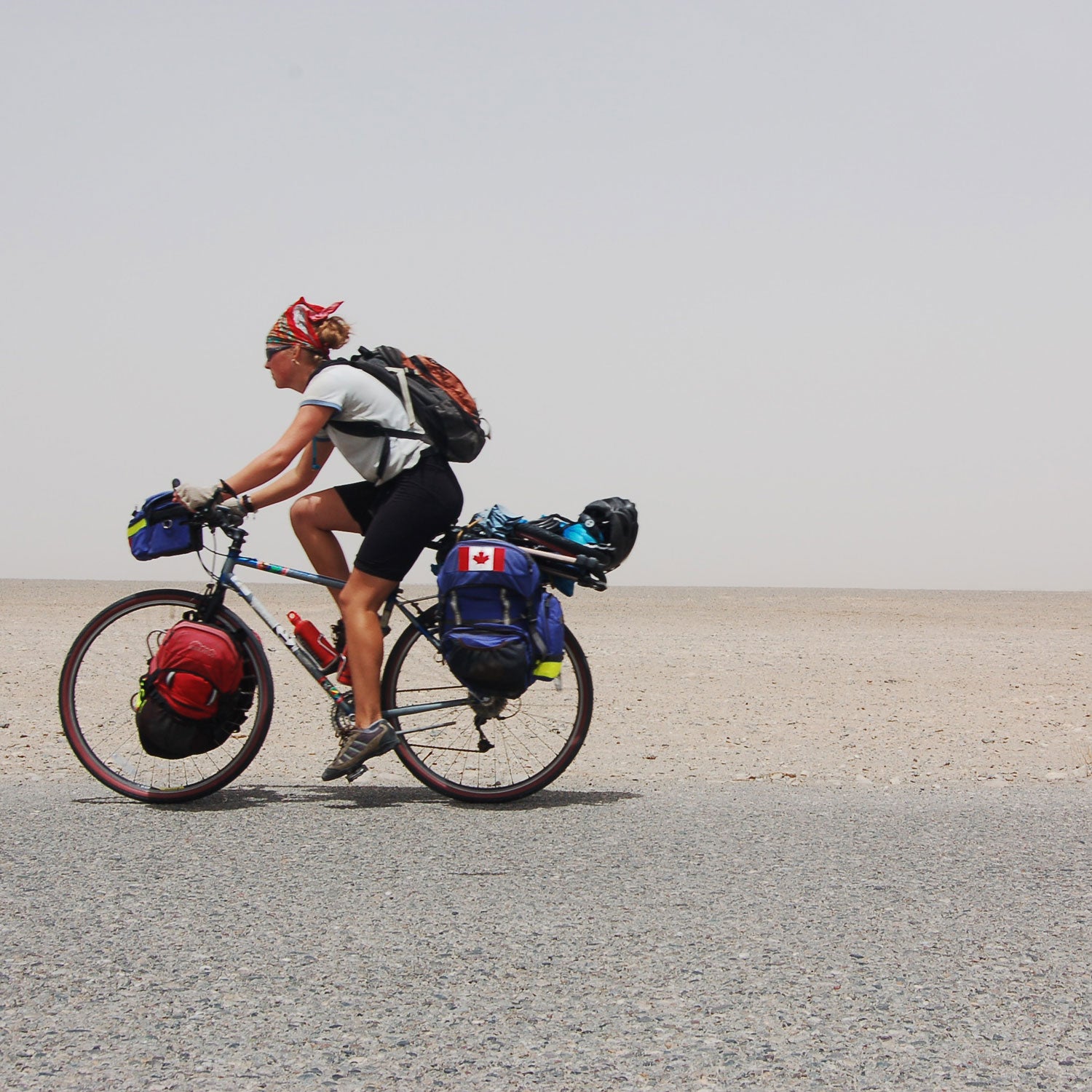Kate Harris is at the controls of a Cessna 172, flying above the Yukon’s frozen Lake Laberge on a bluebird late-winter day. Her instructor, Jessica, is in the copilot’s seat, ready to take charge if need be. Harris is learning to execute steep turns, and as she practices the sharp 45-degree maneuvers, I watch the horizon twist itself into a near vertical line from the back of the plane. “Now pull, hold that nose up,” Jessica says. “Keep that bank angle, a little more bank.”
Harris, 36, is the author of the thoughtful and compelling new memoir ($25, Dey Street), and she’s no stranger to adrenaline-inducing adventure. The book, out in the U.S. on August 21, is already a bestseller in Canada, and it tells the story of a 14-month-long cycling trip Harris took tracing the Silk Road with her childhood best friend. But it’s also about much more: the seemingly arbitrary ways that history, geography, and politics can throw up borders between us, and what it means to be an explorer in the modern era. She moves beyond the old definitions, so closely tied to conquest and colonialism, and presents exploration as a way of seeing the world. “We long our whole lives for things we’ve never known, places we’ve never been, abstractions that come alive to us in unexpected ways,” Harris writes. “Perhaps the great task of modern explorers is not to conquer but to connect, to reveal how any given thing leads to another.”

Harris grew up in rural Ontario, playing outside and plowing through books about the men and women who forged paths through the world’s remote places. Her dream to become an astronaut-scientist took her to the University of North Carolina at Chapel Hill, then to Oxford and MIT. It also sent her to a Mars simulation in the red dust of Utah and, once disillusionment with laboratory life chased her from academia, led her down the Silk Road by bicycle. Her recollection of that journey is beautifully written, a vivid conjuring of landscapes most readers have never seen. Of Marco Polo, her predecessor on the Silk Road, she writes: “All [he] did was travel to lands new to him but old to others and write about what he saw. Could it be so simple? The idea gave me strange hope.”
Hope is the right word. Lands of Lost Borders is fundamentally optimistic and uplifting, and Harris is funny and generous. So many adventure memoirs detail seemingly superhuman feats of endurance that are off-limits to most mortals. Harris, instead, suggests that anyone can become an explorer simply by taking a long walk—or a bike ride—and paying close attention to the world as it passes by. Her enthusiasm is contagious.
Those flying lessons were another form of exploration. When her hour was up on that day back in March, Harris set us down gently on the runway at the Whitehorse airport, a couple hours north of the off-grid cabin where she lives—reading voraciously as she did as a child and plotting her next adventures. Safe on the ground, she broke her silent focus with an exclamation: “I don’t want to stop!” I felt the same way when I turned the last page of her book.


